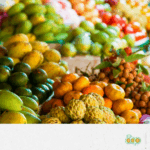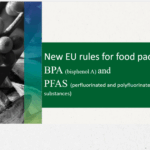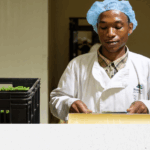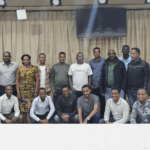Workshop to launch the Regional Guide to Good Mango Practices in West Africa
- 21/01/2022
- Posted by: Sandra Borma
- Category: Gambia, Ghana, News
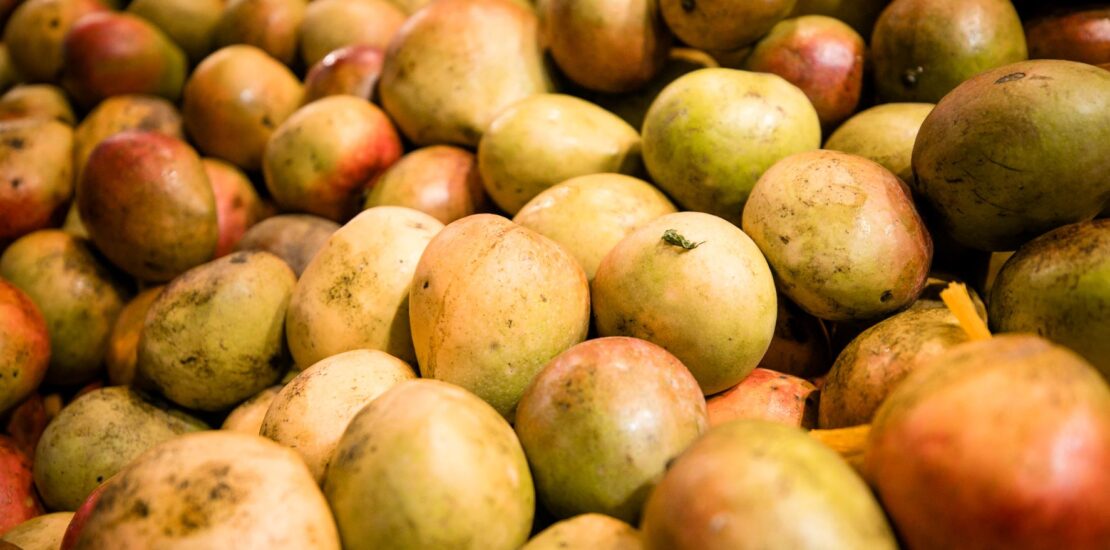
12 January saw the launch of a project to support the development of a “Regional Guide to Good Practices for Mango in West Africa”. The development of the Guide is being organised as part of COLEACP’s partnership with the ECOWAS SyRIMAO project, “Innovative Regional Fruit Fly Management System Project in West Africa”, via the EU-funded Fit For Market SPS programme.
The January workshop brought together more than 60 participants, stakeholders in the mango sector from the public sector (competent authorities) and the private sector (inter-professional organisations and companies) from 10 ECOWAS countries, as well as representatives of support projects for the mango sector in the ECOWAS zone.
During this event, the objectives of the Good Practice Guides currently being initiated by COLEACP for priority sectors were reiterated as facilitating:
- compliance of practices and products
- recognition of compliance with standards and regulatory requirements for market access
- dialogue and exchange of practices within the sector
- adaptation of educational tools to the needs of different actors in the value chain.
Fresh mango was selected as a priority commodity chain for the development of a Good Practice Guide due to the SPS requirements to which it is subject, particularly relating to compliance with EU phytosanitary regulations concerning fruit flies. As the problem of fruit fly (Tephritidae) control transcends the administrative borders between countries, a regional guide is needed.
Eight of the ECOWAS countries are particularly concerned, as they have already submitted a dossier to the EU competent authorities presenting their systematic approach to managing the phytosanitary risk associated with fruit flies, in line with European legislation: Burkina Faso, Côte d’Ivoire, Gambia, Ghana, Guinea, Mali, Senegal and Togo.
As the sector is especially important in Burkina Faso, a Good Practice Guide for dried mango is also planned alongside this regional fresh mango guide.
January’s regional launch workshop was the first step in the process of developing the Guide, which will continue in each of the eight countries through national information workshops to mobilise the various stakeholders. The next step will be to collect and analyse information on organisation and current practices in the sector, particularly through stakeholder surveys, to characterise the practices and control measures applied, identify gaps and control and self-control measures applicable at national and regional levels, and feed into the exercise of drawing up both Guides (fresh and dried mango).
This process will be based on bodies that will be set up at national level (technical working groups) and regional level (technical working group and steering committee), accompanied at each stage by experts from COLEACP and SyRIMAO.
The first version of this Regional Guide to Good Mango Practices is scheduled for final validation by the end of 2022. If this is achieved, action plans, support for deployment of the Guide, and the application of the recommendations resulting from the work could be implemented in the countries during the 2023 mango export season, with the support of the Fit For Market SPS programmes of COLEACP and SyRIMAO of ECOWAS.
The meeting concluded by reiterating the importance of commitment and mobilisation of stakeholders at both national and regional levels to achieve this objective.
Finally, a Question-and-Answer session confirmed participants’ interest in this Guide.
The targeted countries will be contacted individually by COLEACP to undertake the next steps.
This activity is supported by the Fit For Market SPS programme, implemented by COLEACP within the Framework of Development Cooperation between the Organisation of African, Caribbean and Pacific States (OACPS) and the European Union.

